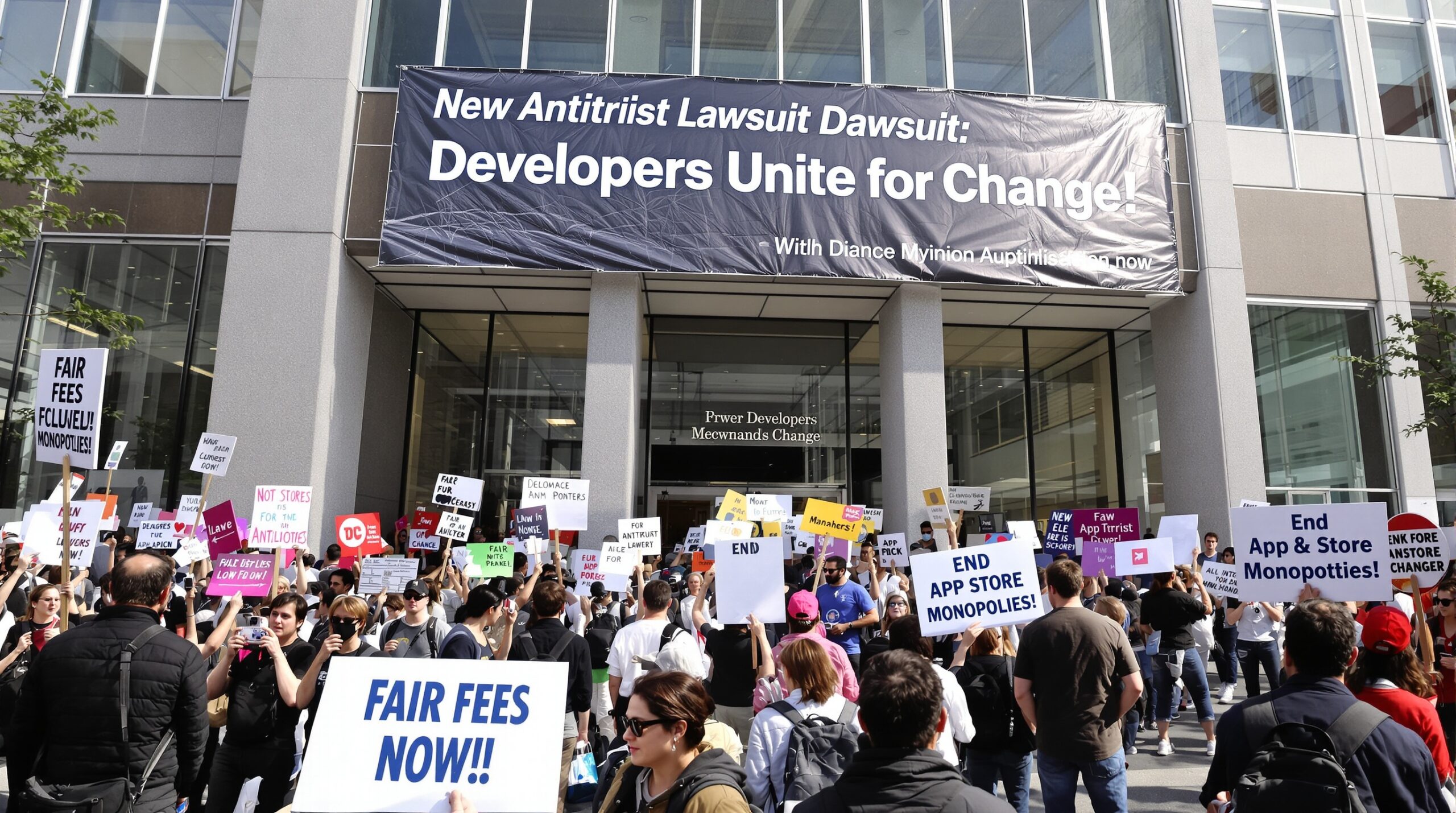App stores have become powerful gatekeepers in today’s digital economy. Their control over software distribution has drawn intense scrutiny from regulators, developers, and consumers worldwide. Companies operating major app stores have imposed fees and policies that many believe stifle innovation. The latest antitrust lawsuit signals heightened efforts to address these concerns.
The Core of the Issue: App Store Fees
Developers have raised concerns about the high fees charged by app store operators. Most stores charge a commission of up to 30 percent on sales and in-app transactions. Many developers feel this commission is excessive compared to the value the platform provides. App store operators argue that the fees cover operational costs, support, and security enhancements.
Background: App Store Dominance and Controversy
A small number of major companies control the dominant app stores in the global market. These platforms are critical channels for distributing software to billions of users. Their policies and limitations can shape the course of digital innovation. Developers seeking to reach mobile users have little choice but to comply with these rules.
The centralization of app distribution gives these companies considerable power over developers. Many argue that this undermines competition and consumer choice. Prior lawsuits and regulatory investigations have probed similar issues, but challenges remain ongoing.
Details of the New Antitrust Lawsuit
The latest antitrust lawsuit focuses on the fees and restrictions imposed by leading app stores. Plaintiffs claim these practices create an illegal monopoly. The lawsuit alleges that fees hurt both developers and consumers by driving up prices and limiting innovation. Plaintiffs call for changes that would allow fairer competition and alternative distribution methods.
Legal experts point out that the case could set important precedents for digital platforms. If courts rule in favor of the plaintiffs, app store operators may face significant regulatory changes. Early reactions suggest the case will attract close attention from policymakers and industry stakeholders.
Major Developers Join Forces
The lawsuit has drawn support from a broad coalition of developers, both large and small. Many developers have expressed frustration with restrictive app store policies. Grassroots groups have emerged to demand transparency, lower fees, and better negotiating power for independent creators. Their unified stance adds weight to the lawsuit’s arguments for reform.
Developers Rally for Change
In response to continued pressure, software developers have begun to organize more actively. Industry associations, advocacy groups, and online forums have enabled developers to share experiences and coordinate actions. Petitions, open letters, and public campaigns call for app store operators to re-examine their fee structures and review processes.
Shared Grievances and Common Goals
Many developers say the current system is unsustainable for smaller creators. High commissions, slow approval times, and unpredictable policy changes often disrupt their business models. These challenges limit the ability of new or independent apps to reach a broad audience.
Developers hope that collective action will pressure app store platforms to introduce more developer-friendly policies. Lower or tiered fees, transparent rules, and faster approvals top the list of requests. Such changes could unleash a new wave of innovation and competition in the app ecosystem.
App Store Operators Respond
App store companies have responded to lawsuits and criticism by defending their policies. They cite the need for a secure and reliable software ecosystem. Representatives state that fees fund platform maintenance, security, and global infrastructure. Revenue from commissions enables them to invest in new tools and guidelines for developers.
Some app stores have implemented partial reforms in recent years. These changes include lower commissions for small developers or exemptions for certain types of apps. However, critics argue these reforms do not go far enough to address the underlying monopoly concerns.
Potential Impact of the Lawsuit
The outcome of the antitrust lawsuit could reshape the future of digital marketplaces. If courts rule against the current fee structure, app stores may need to radically adjust their business models. Experts believe such a decision would benefit independent developers and ultimately give consumers more choice.
Alternatively, if app stores prevail in court, developers may continue to face the same challenges. The pace of innovation and diversity of available apps could be affected either way. Observers agree that this case could influence digital policy and regulation for years to come.
Broader Antitrust Scrutiny in Tech
The app store lawsuit is part of a global wave of antitrust activity targeting big technology companies. Governments on multiple continents are re-examining how tech platforms influence markets. Recent actions have included fines, legislative proposals, and new oversight bodies aimed at digital market power.
Policymakers argue that robust competition laws are essential to a healthy digital economy. They believe that unchecked power in technology markets can stifle new ideas and increase costs for consumers. The results of this and similar cases will provide important guidance for future regulation.
Possible Paths to Reform
Industry analysts have proposed several alternatives to existing app store models. Some suggest opening stores to third-party payment systems, reducing the mandatory commission. Others advocate for allowing alternative app stores and sideloading on mainstream platforms. These options could help break the tight control held by current operators.
Reforms could also include clear guidelines for approval processes, dispute resolution mechanisms, and more transparency for developers. Such changes may help balance platform security with fair market access for creators. Both developers and consumers stand to benefit from a healthier app ecosystem.
The Way Forward
The antitrust lawsuit represents a pivotal moment for app stores, developers, and the wider tech industry. Developers’ increasing willingness to organize and speak out signals growing momentum for change. App store operators must weigh the benefits of openness against concerns over security and platform quality.
As the legal process unfolds, all eyes will be on the court’s decision and any resulting policy shifts. Stakeholders from every corner of the digital economy wait to see how the case will shape the future of app distribution. The coming years may well redefine the balance of power in the mobile software market.

